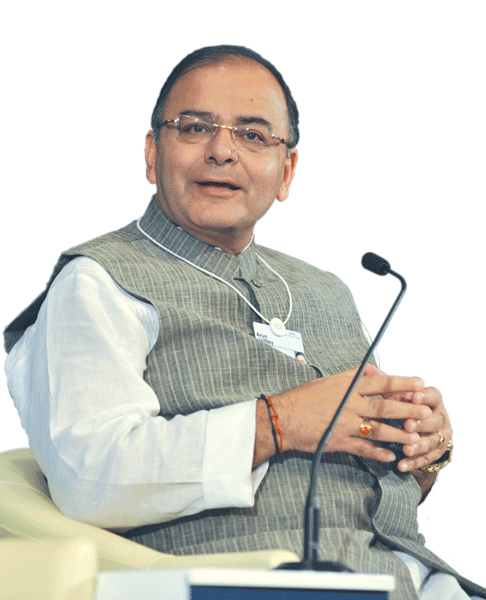After two years of less than 5 percent growth the Indian economy is finally picking up pace. Various agencies are projecting a GDP growth of 5.5– 5.6 percent in this fiscal year. This is a much-needed improvement as investor confidence has been subdued and few new projects have been announced.

One sign of this revival is the fact that new investments in the December 2014 quarter were at an 18-quarter
high, showing that the business community is gradually regaining confidence in the economy and believes that the Modi government will do more to boost the economy.
The other worry area — inflation — is also on a downward trajectory, with both wholesale and retail prices falling. To see this in context, inflation first started at the end of 2007. We have thus seen seven straight years of rising prices. Foreign investment in India is also recovering. The period April – August 2014 saw total inflows of $33.7 billion, up drastically from the $3.1 billion seen in the same period the previous year. Overall, the stage is set for the Budget to build on these improvements and take India’s growth-path back to the pre-crisis levels. But, to do that, the Budget must include several key points.
Budget’s key role
On the tax front, there are several things the upcoming Budget can do to make life easier for the Micro, Small and Medium Enterprises (MSMEs). The first is a tweaking of the capital gains tax formulation.
At present, when MSMEs settle their loans with banks or other financial institutions in a single settlement, a significant amount is waived for interest as well as principal in a particular financial year. However, due to this, these borrowers have to pay capital gains tax. Often, this amount works out to be quite debilitating for small businesses. The upcoming Budget should have a provision so that such a reduction in liability is not treated as capital gains and be kept out of the purview of any tax.
Simply, from the point of view of ease in doing business, an area where India lags behind most of its peers, making the taxation system easy, consistent and predictable is the key.
Boost manufacturing
Apart from tax, another area the Budget can provide a fillip in, is manufacturing.
The manufacturing sector needs to be boosted as it is lagging behind every sector. India’s growth story needs a composite contribution by all the sectors of the economy. Further, the Budget should incentivise research and development to give the current government’s Make in India initiative a solid push.
Another area that will help small businesses is dispute resolution. The authority on advance ruling and the advance pricing authority must be strengthened. The purview of the Customs Excise and Service Tax Appellate Tribunal (CESTAT) must be expanded to include indirect tax litigation since a large number of such cases are still pending. Expediting the clearance of such cases will greatly benefit MSMEs as funds locked in tax disputes will be freed.
One major area of improvement that the Budget can tackle head-on is that of clearances for projects. There is much the Budget can do to ease the process of obtaining land, labour and environmental clearances. Since many of these clearances come from the states, it is essential for there to be a coordinated approach between the centre and states to expedite these clearances.
The announcements of fresh capacity-building investments by cash-rich public sector enterprises will also go a long way in building the private sector’s confidence. Several Public Sector Units (PSUs) are sitting on huge piles of cash that can easily be invested in capacity-building or expansion.
One option is for PSUs to provide the initial investment for infrastructure projects. Once these are up and running, they can be transferred to private companies on a revenue-sharing
basis. PSUs also need to leverage their borrowing power better.
Gold schemes needed
On an individual level, the Budget must make use of the existing advantages present in India. Given the Indian public’s affinity for hoarding gold, the Budget should introduce gold-backed schemes and investments to make use of this hidden wealth.
Increasing tax exemptions will boost household savings and expenditure, a much needed aspect of economic revival. This is specially so in regard to interest income on fixed deposits. The salaried middle class is taxed when it earns and then again when it saves, which is not just unfair but also economically counter-productive.
Jaitley’s big chance
The upcoming Budget has a lot of expectations, especially given the promises of the current government. The signs are all pointing towards an economic recovery, but only decisive budgetary steps will convert these signs into reality.
The salaried middle class is taxed when it earns and then again when it saves, which is not just unfair, but also economically counter-productive.
This is especially important for the Prime Minister who is being accused of mere talk, no action. People are also saying that he has been lucky because the declining oil prices have helped keep inflation and the fiscal deficit down.
But he needs to show in this Budget that he knows what he is doing and that he is in full control of the economy. Opportunities such as this do not come knocking twice in a prime minister’s tenure.





